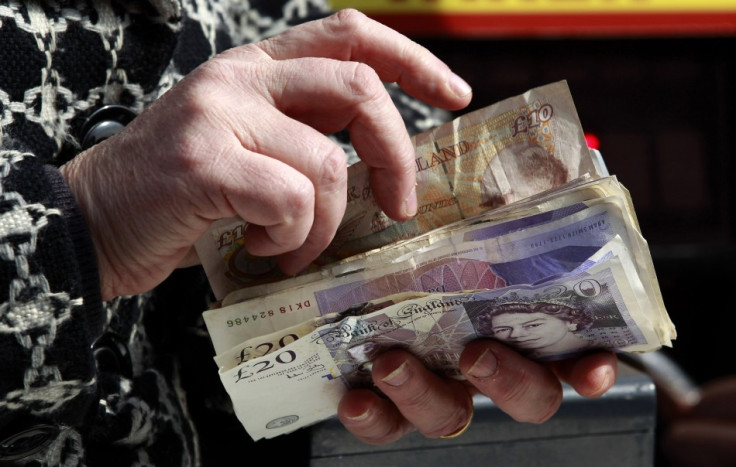UK Household Wealth Passes £7tn - Lloyds

Household wealth in Britain passed a net total worth of £7tn for the first time last year, according to research by Lloyds TSB Private Banking, though the ever-bloating headline number hides a precarious reality for family finances in the country's comatose economy.
Incomes for the poorest households have been squeezed by a high cost of living, below-inflation wage growth, and welfare cuts under the government's austerity drive as it seeks to erase the Treasury's budget deficit.
"While wealth has soared, there is a large divide in where it has accumulated," said Nitesh Patel, economist at Lloyds TSB Private Banking, pointing to the fact that the wealthiest 10 percent of households hold 22 times more wealth than those in the bottom half - at an average of £1.82m versus £82,000.
"This is a substantial gap, although many of the wealthiest are older individuals who have had a much longer time to accumulate their wealth holdings, as well as to reduce their debts."
An increase in financial assets held by households since 2002 has helped drive the wealth-boom over the past decade, accounting for almost two thirds of the increase.
Over half of these assets are in life assurance and pension funds, as Britain's ageing population produces an ever-growing number of pensioners.
Since the financial crisis started in 2007, household wealth has grown by 7 percent, or £478bn.
Office for National Statistics (ONS) figures put the UK's net wealth at £6.8tn at the end of 2011, as persistently high property prices offset a fall in the contribution of the central government.
Incomes squeeze
Despite the general increase in wealth, incomes have been gripped by a number of factors.
Office for National Statistics (ONS) data shows that pay rose by 1.2 percent between November and January, while consumer price inflation hit 2.7 percent in the same period. This amounts to a real cut in pay.
Household bills have also been high by volatile commodity prices, sending energy and food costs upward.
A number of welfare cuts by the government are also reducing incomes, such as child and housing benefit changes.
Research by the Trades Union Congress (TUC) shows that despite changes to the personal allowance, which lifts the income tax threshold to £10,000 in April 2014, Britain's poorest workers are four times worse off because of the VAT hike to 20 percent in January 2011.
Lifting the personal allowance threshold by £100 is ten times cheaper for Chancellor George Osborne than cutting VAT by a penny. HMRC estimates say raising the personal tax allowance by £100 in 2013/14 would cost Osborne £510m. Cutting the rate of VAT by just a penny in the pound would cost him £5.1bn.
TUC analysis shows that the poorest income group for working households, who receive just £195.92 a week, are 1.6 percent worse off a year when you take into account the effect of the VAT and personal allowance increases.
Annually, the combined effect of the tax changes to VAT and personal allowance leaves this group £164.84 worse off.
---
Follow @shanecroucher
© Copyright IBTimes 2025. All rights reserved.






















